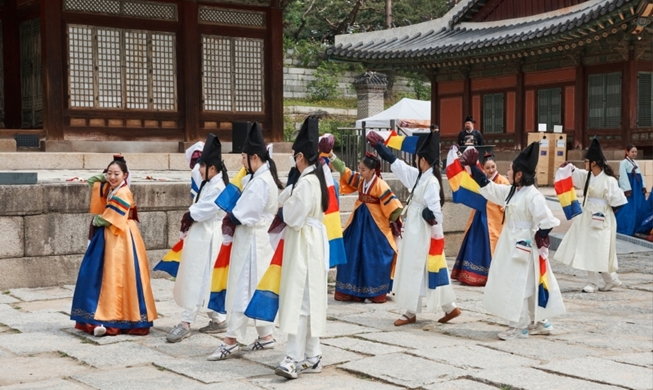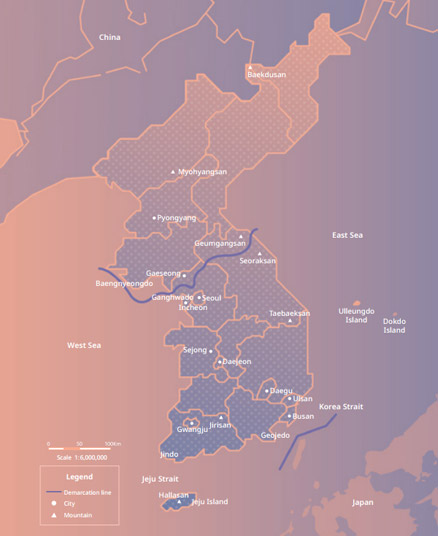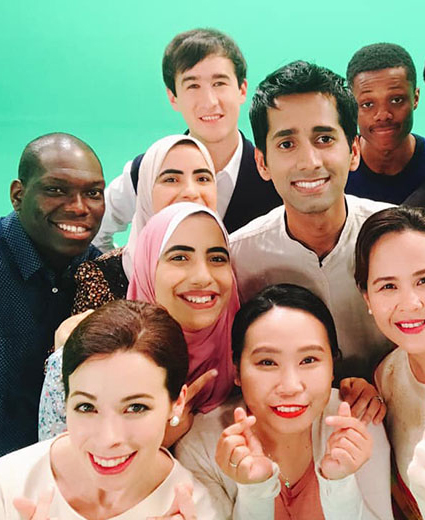-
 Korea.net's 24-hour YouTube channel
Korea.net's 24-hour YouTube channel- NEWS FOCUS
- ABOUT KOREA
- EVENTS
- RESOURCES
- GOVERNMENT
- ABOUT US
Koreans have regarded themselves as a ethnically homogenous country. However, the rapid growth of foreign workers, international students, and marriage immigrants has made the acceptance of and coexistence with diverse cultures one of the key issues of today’s Korean society. As of 2020, foreigners living in Korea made up around 3.3% of the country’s population, and 46% of them were Chinese. In addition, the percentage of international marriages drastically increased as well, reaching 7.2% in 2021. As a result, the number of people living in multicultural families (with members of different nationalities or races) has exceeded 1.09 million.
In 2008, Korea enacted the Multicultural Families Support Act, designed to support the livelihood of multicultural families. Currently, the country has 230 support centers for multicultural families nationwide. The centers provide marriage immigrants with Korean language courses, psychological counseling, job-finding support, and other programs designed to help them adapt to their life in Korea. The centers also help children from multicultural families succeed in the Korean public education system and become proud members of society.
After the UNESCO Universal Declaration on Cultural Diversity in 2001, understanding differences in thoughts and expressions and working toward the shared prosperity of humanity emerged as a global issue. In keeping with the trends, Korea enacted the Act on the Protection and Promotion of Cultural Diversity in 2014, and designated May 21 as Cultural Diversity Day and the following week as Cultural Diversity Week, which it celebrates with various programs. Furthermore, in 2021, the government announced the Framework Plan on the Protection and Promotion of Cultural Diversity to address worsening discrimination and hatred during the COVID-19 pandemic and ensure that different cultures come together to create even more creative cultures.
In 2008, Korea enacted the Multicultural Families Support Act, designed to support the livelihood of multicultural families. Currently, the country has 230 support centers for multicultural families nationwide. The centers provide marriage immigrants with Korean language courses, psychological counseling, job-finding support, and other programs designed to help them adapt to their life in Korea. The centers also help children from multicultural families succeed in the Korean public education system and become proud members of society.
After the UNESCO Universal Declaration on Cultural Diversity in 2001, understanding differences in thoughts and expressions and working toward the shared prosperity of humanity emerged as a global issue. In keeping with the trends, Korea enacted the Act on the Protection and Promotion of Cultural Diversity in 2014, and designated May 21 as Cultural Diversity Day and the following week as Cultural Diversity Week, which it celebrates with various programs. Furthermore, in 2021, the government announced the Framework Plan on the Protection and Promotion of Cultural Diversity to address worsening discrimination and hatred during the COVID-19 pandemic and ensure that different cultures come together to create even more creative cultures.














